Despite Milan being strategically located at the gateway to the Italian peninsula, the city does not have a direct river or sea connection, which was traditionally seen as fundamental for commerce. To mitigate this problem, rulers of Milan from the early Middle Ages created a series of canals fed by the rivers Lambro, Adda and Ticino, the latter which flows to the mighty Po and eastwards to the Adriatic Sea.
These waterways have since been closely connected to the city’s economic and cultural history, facilitating the economic and cultural expansion of Milan with the arrival at low cost of various materials including stone, lime, grain and lumber. In fact, marble for the Duomo was transported via the Naviglio Grande from quarries located near Lake Maggiore.
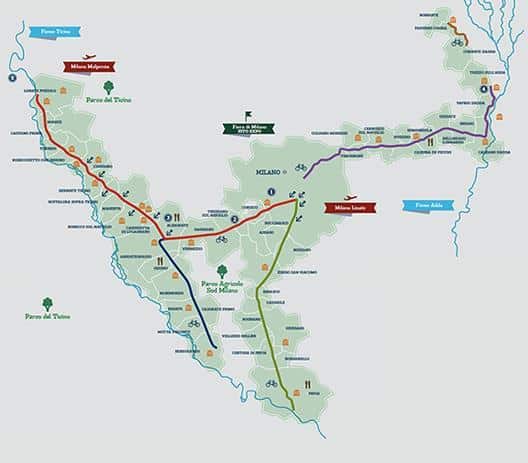
The five main canals in the Lombardy region of Italy.
From the 1960s, with the technological advance of other means of transport such as rail, these canals became less commercially viable. As a result, some of the infrastructure fell into disarray. However, recently the unused space adjacent the canals have given way to a network of 162km of Dutch-style paved and unpaved cycling paths cutting across the region’s rich cultural heartland.
As you will read on, most of the paths are for beginners and quite manageable on a day trip, making them ideal for families. The surrounding cities are connected by a train network and for a small three euro fee you may take your bike on the train back to Milan.
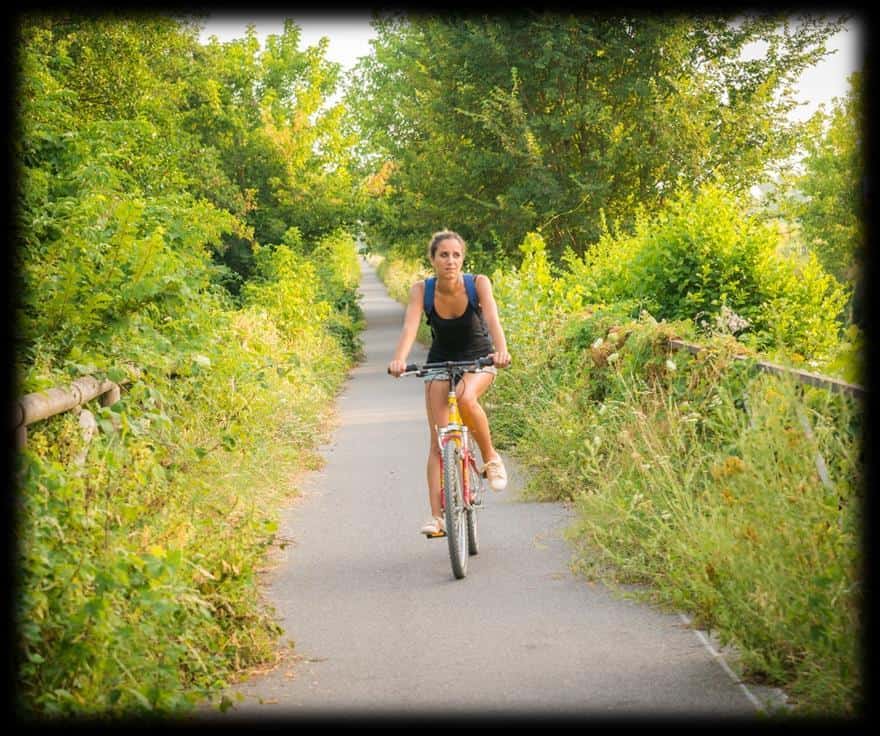
The cycling paths are mainly flat and ideal for all ages and skill levels. No need for a carbon racing bike! However, it is highly recommended to carry mosquito repellent during the hot months.
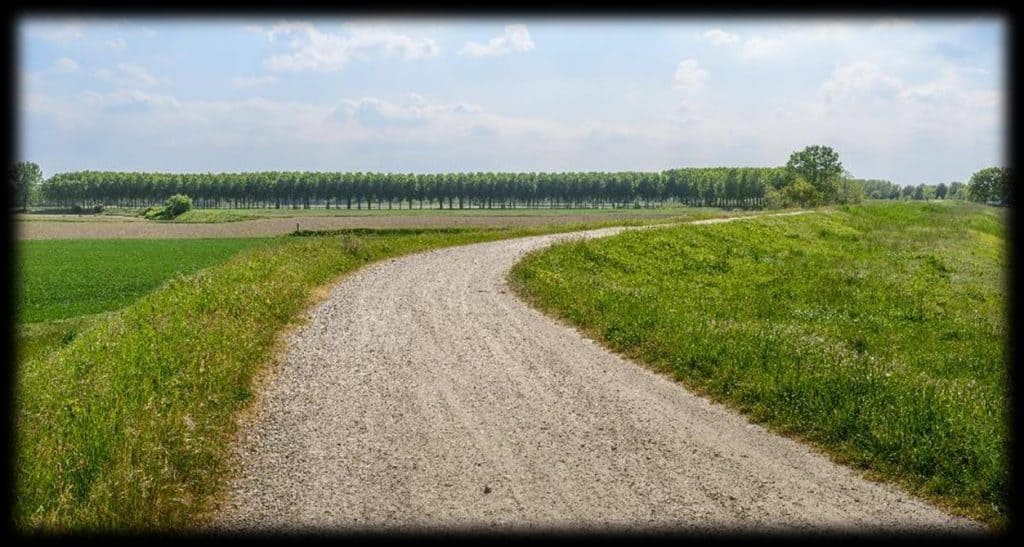
A gravel path near Pavia
Navigli District of Milan
Our journey begins in the bohemian Navigli district in the South-West of Milan (M2: Porta Genova) where the Naviglio Pavense and Naviglio Grande meet on a basin. This charming district comes alive at night and is an excellent venue to sit on a terrace and enjoy a Milanese style aperitivo.
Experience the Insider community that takes your international lifestyle to the next level. Download your FREE guide
"18 Steps to Implementing Your Plan B" instantly!
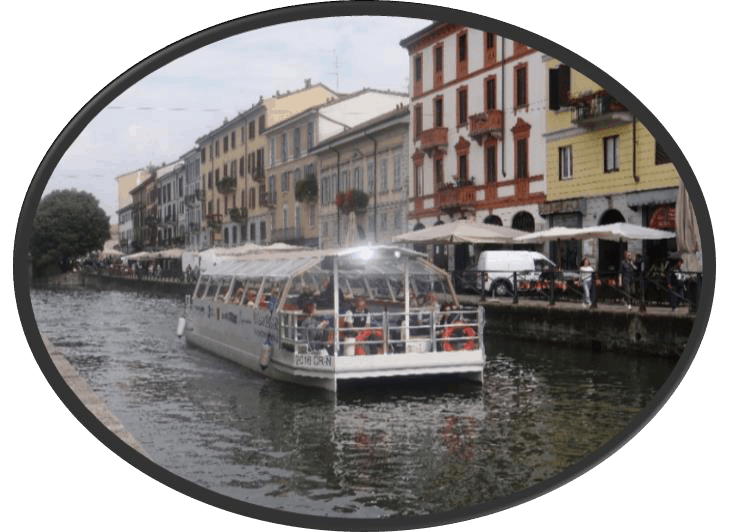
Leisure boats in the Navigli District of Milan. Many of these houses used to belong to traders and be used as workers’ workshops.
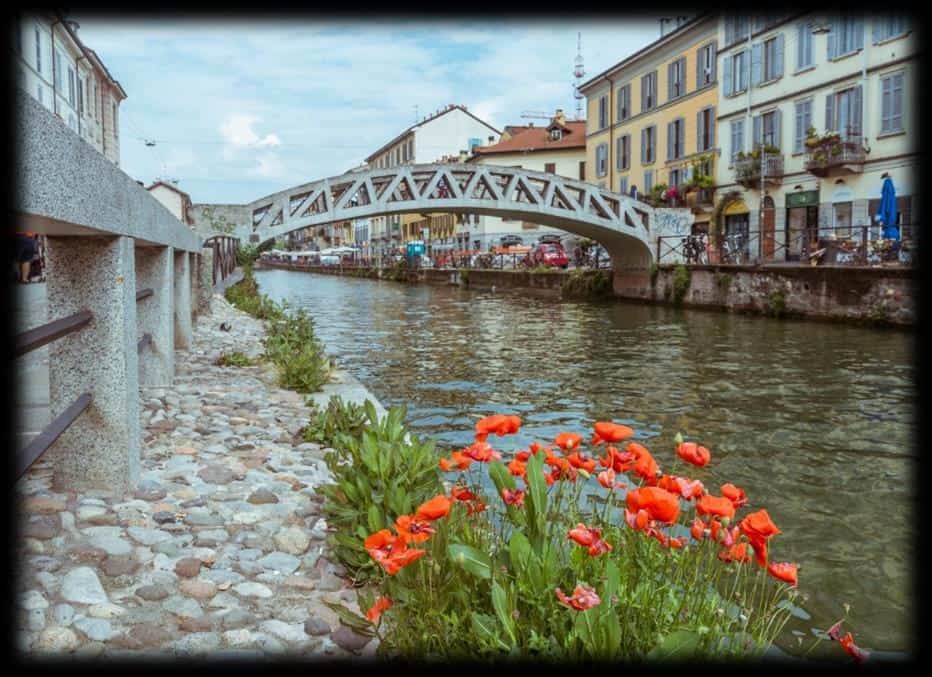
A bridge crossing the Naviglio Grande in the Navigli district of Milan which has a large variety of bars and restaurants for all tastes.
Naviglio Grande (75km)
The Naviglio Grande is the oldest of the canals (built between 1177 and 1257) and streams Southwestwards towards the Ticino River which flows from Lake Maggiore.
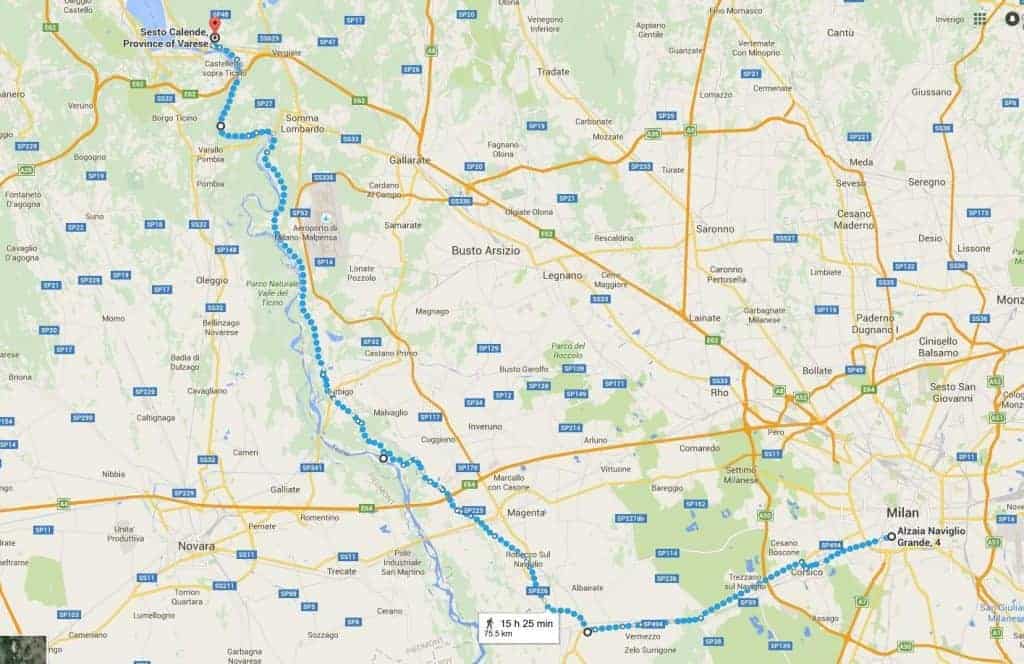
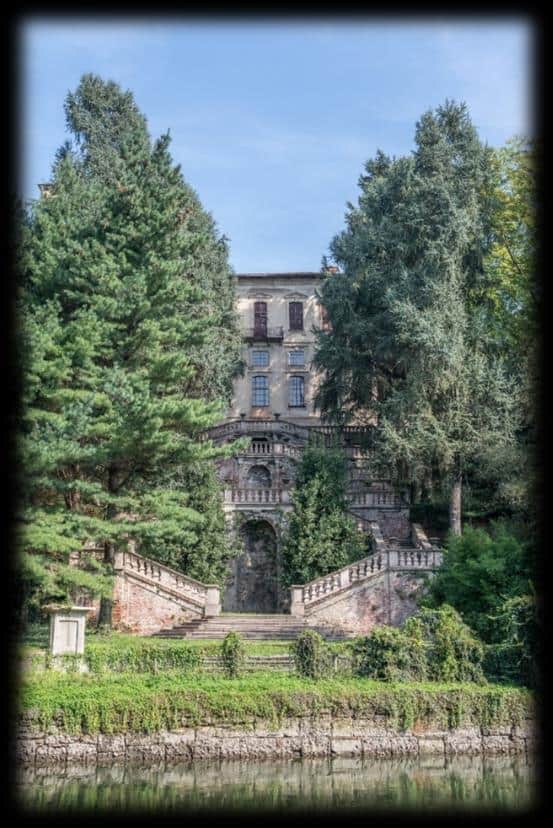
One of the many beautiful villas along the Naviglio Grande
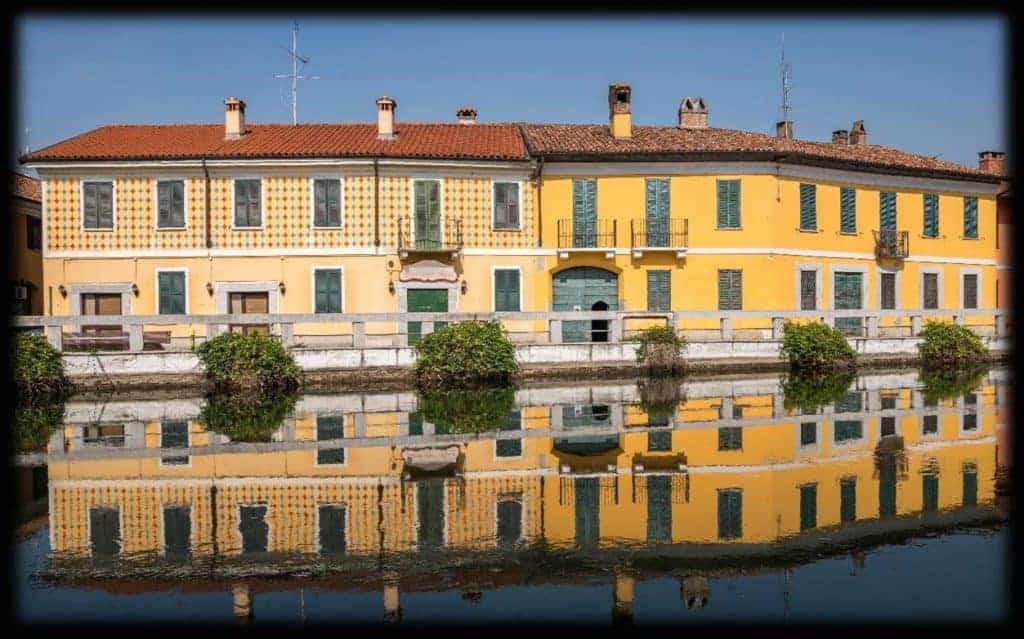
Colourful houses along the Naviglio Grande
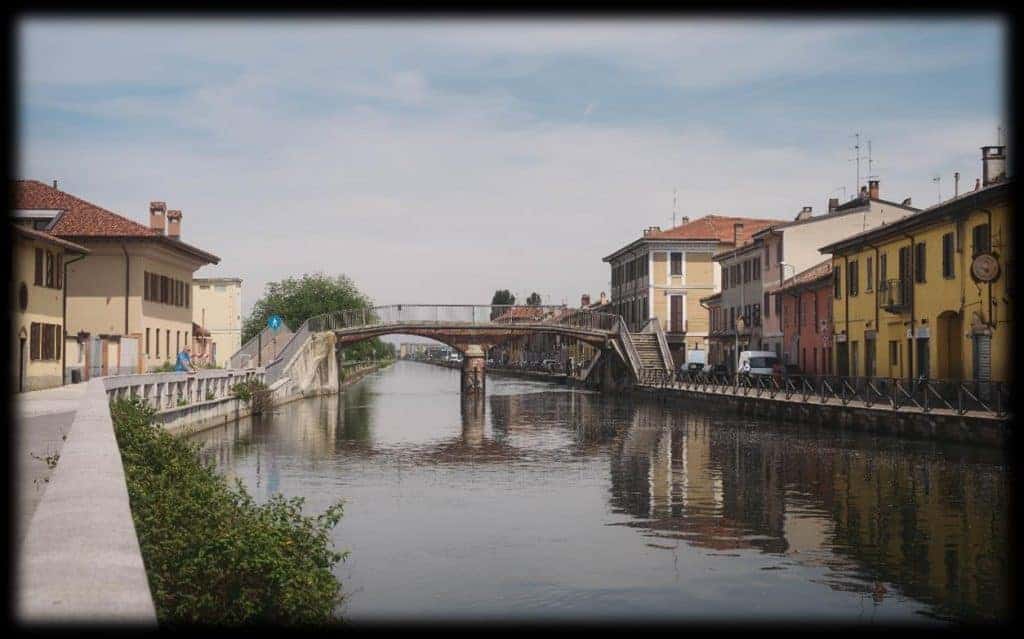
One of the many bridges along the Naviglio Grande. Every little town has amazing gelatarias!
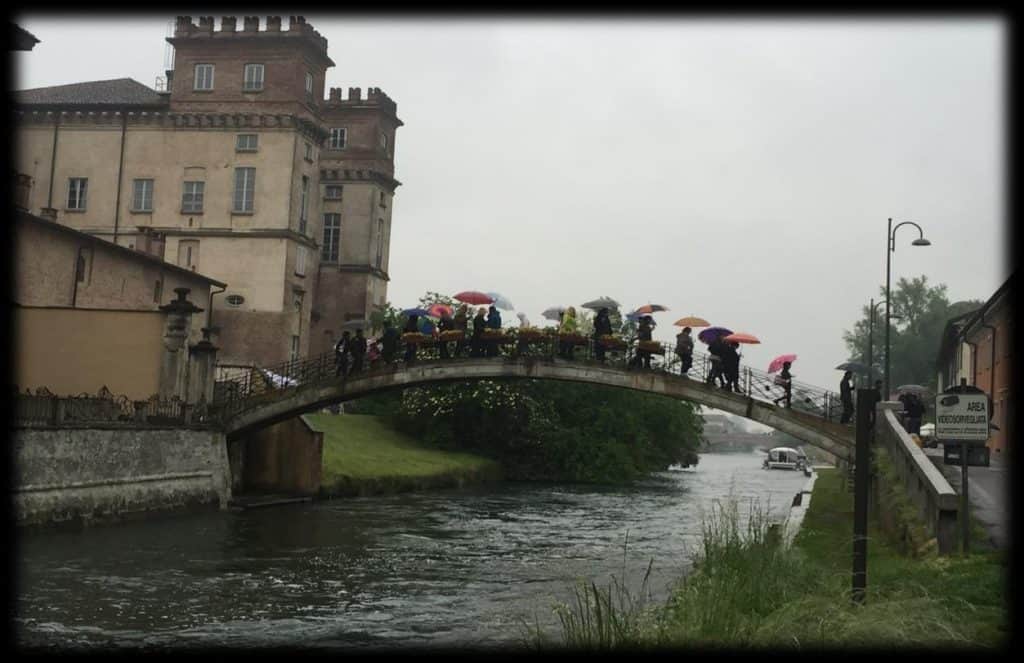
Robecco Sul Naviglio – Ponte Degli Scalini
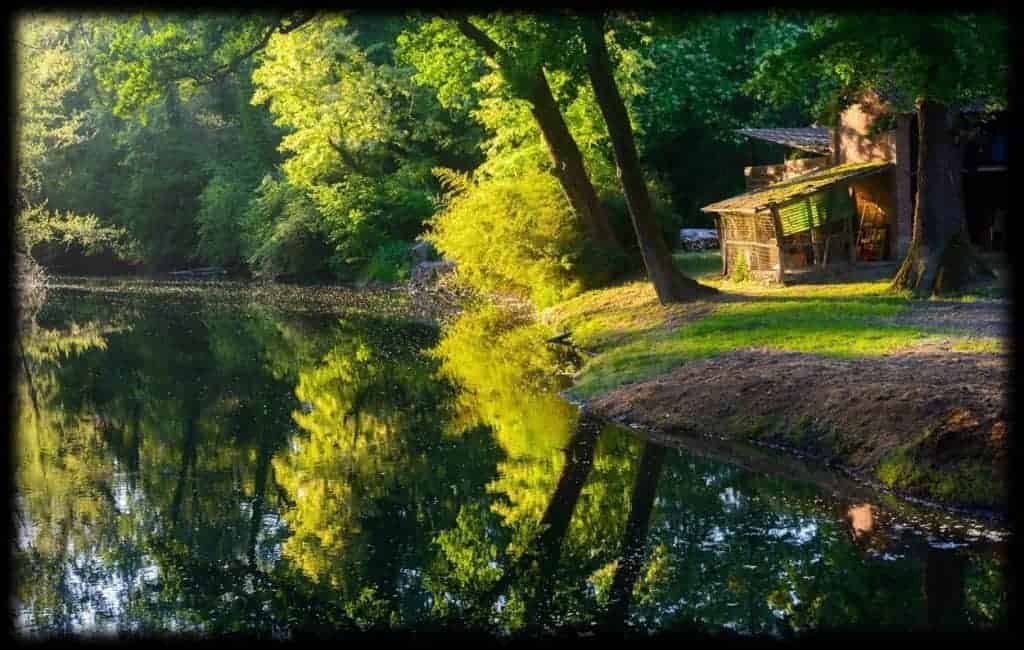
A bayou on the Ticino National Reserve.
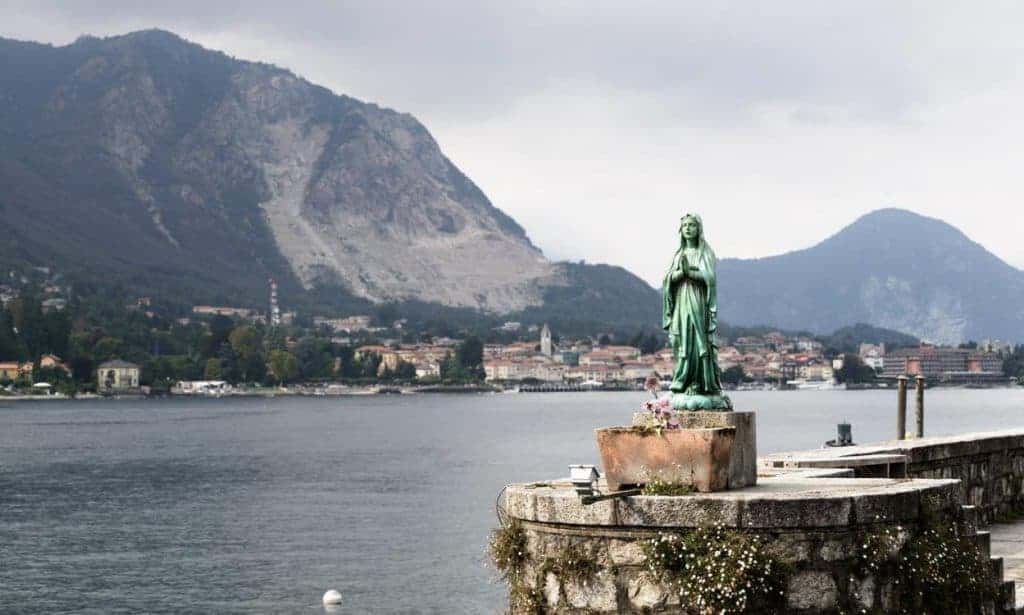
The Naviglio Grande leads to Lake Maggiore. One of the attractions is the Borromeo Islands and the town of Stresa.
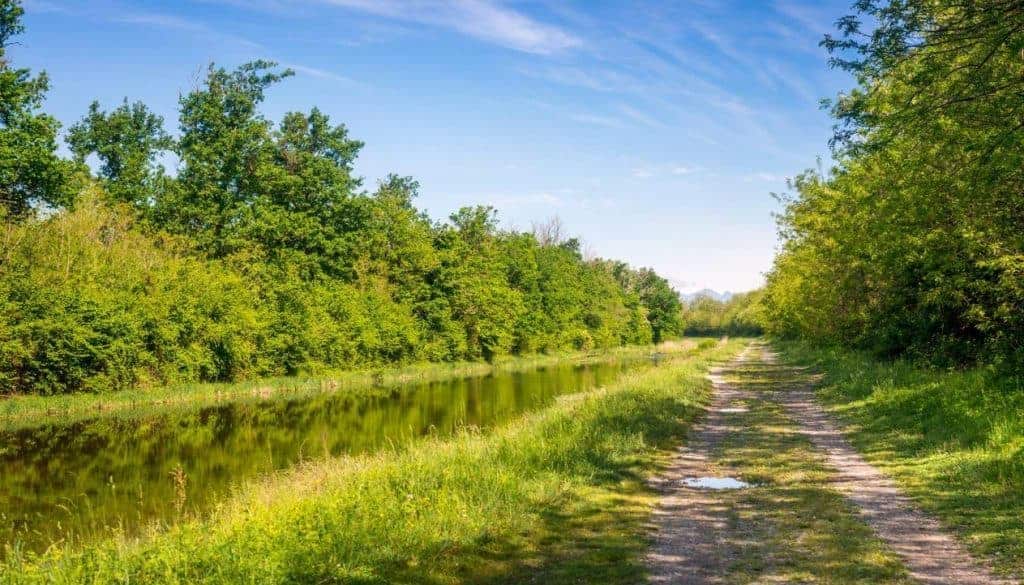
The foothills of the Alps are visible in the background. This part of the path flows through Ticino National Park, a protected reserve area
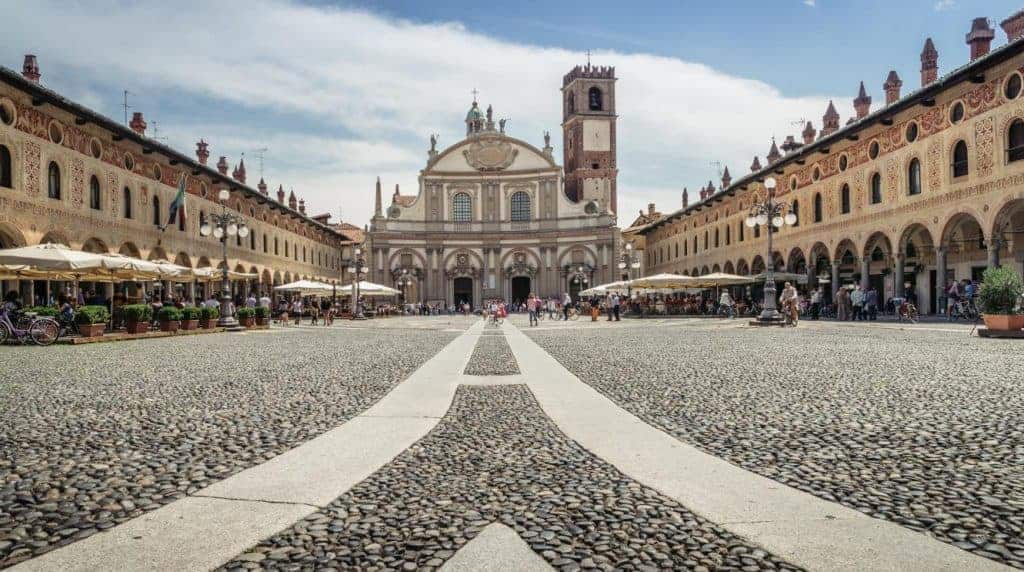
Vigevano, close to the western bank of the Ticino, has a beautiful renaissance style piazza worth a visit!
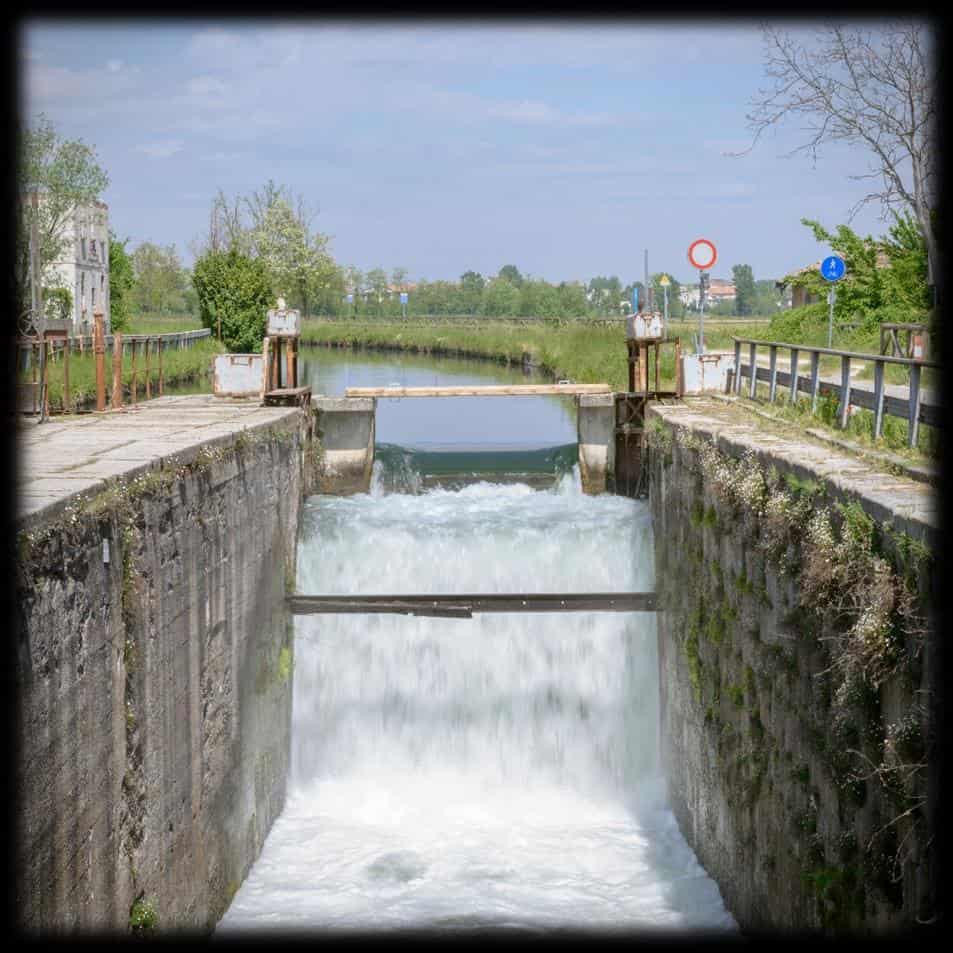
One of the many locks
Naviglio Martesana (38km + 40km to Lecco)
My favourite canal is the Naviglio Martesana, which flows from North-east Milan linking with the River Adda at Trezzo Sul Adda. For the more adventurous, the path continues due North towards Lecco via a gravel path hugging the river (40km).
The first part of the canal is busy and urban as it passes the beautiful city of Gorgonzola, famous for its cheese.
One obligatory stop along the way is the UNESCO World Heritage Site village of Crespi d’Adda built between 1890 and 1910. This village is one of the most interesting and best preserved workers’ villages in Italy.
Interesting, in 1482, Leonardo da Vinci was commissioned to improve the design of this canal and there is a museum in his honour called the Ecomuseum “Adda di Leonardo. Closer to Lecco on at Imbersago you can take a ferry which was originally designed by the great man himself across the banks.
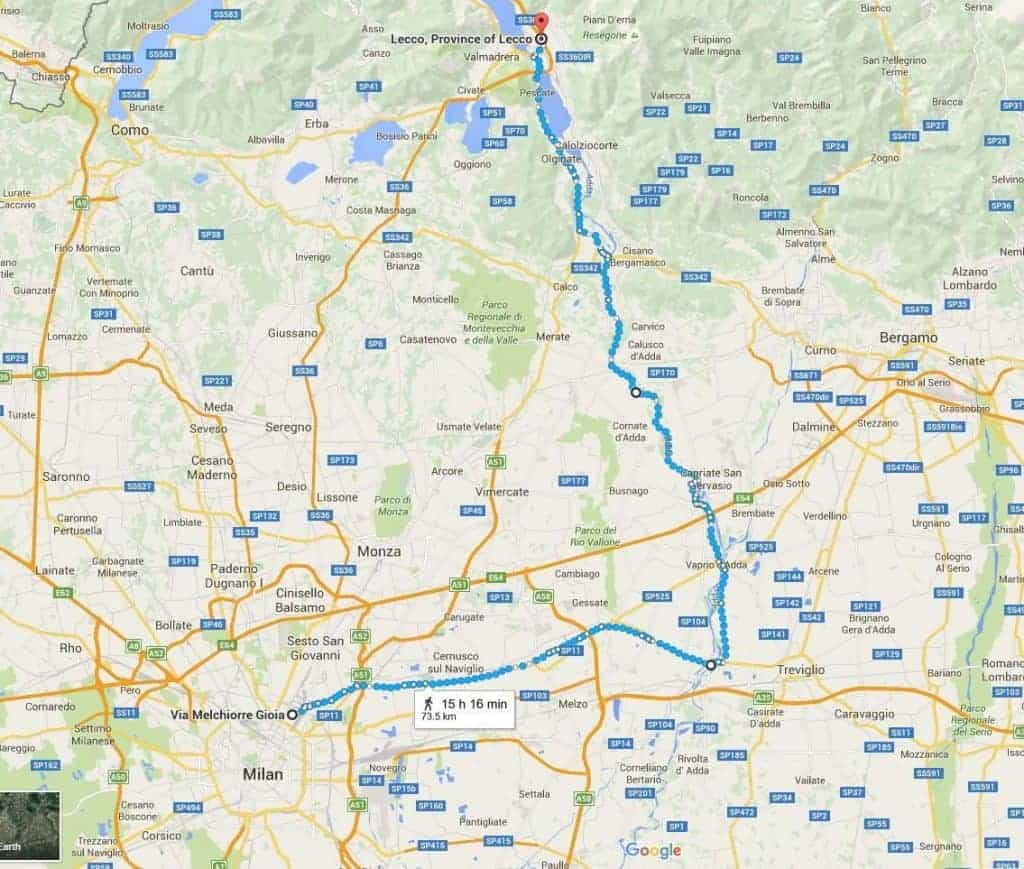
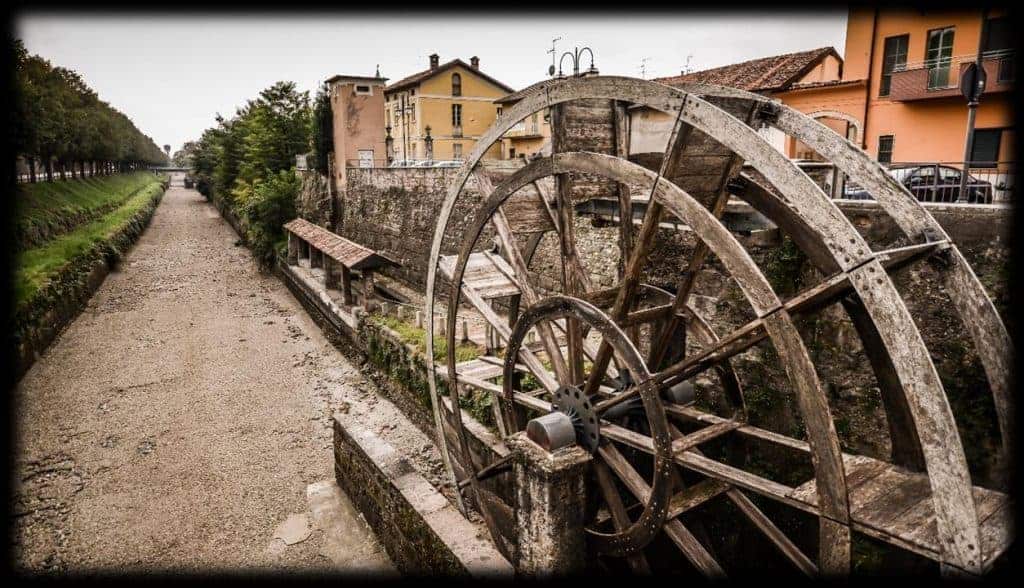
On the right bank of the Naviglio Martesana, there is a massive water wheel (popularly called “rudun”) which is said to have been designed by Leonardo Da Vinci himself.
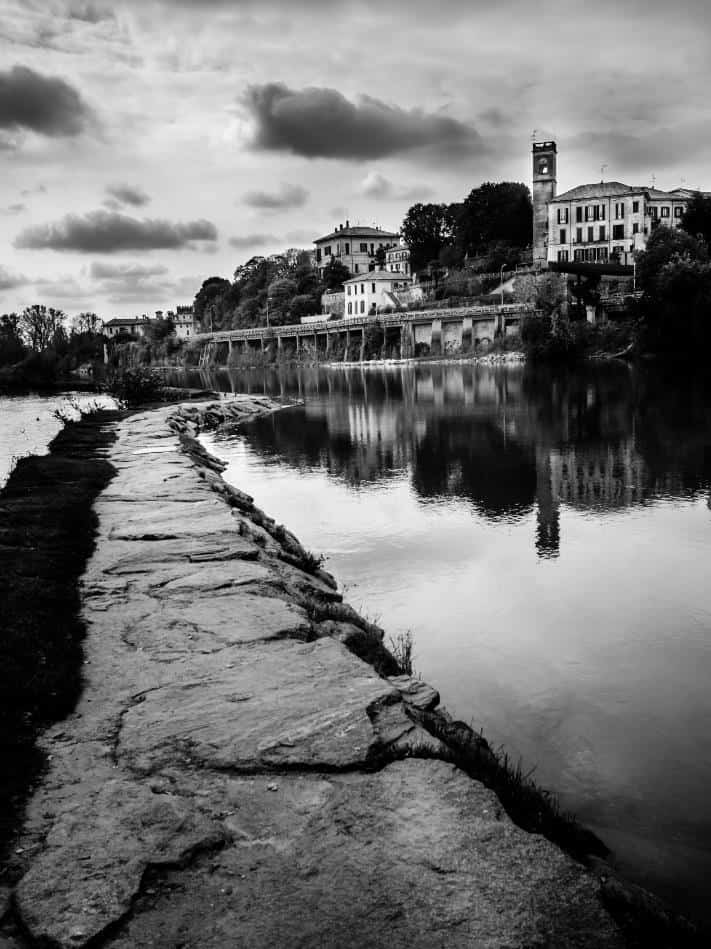
Cassano D’Adda
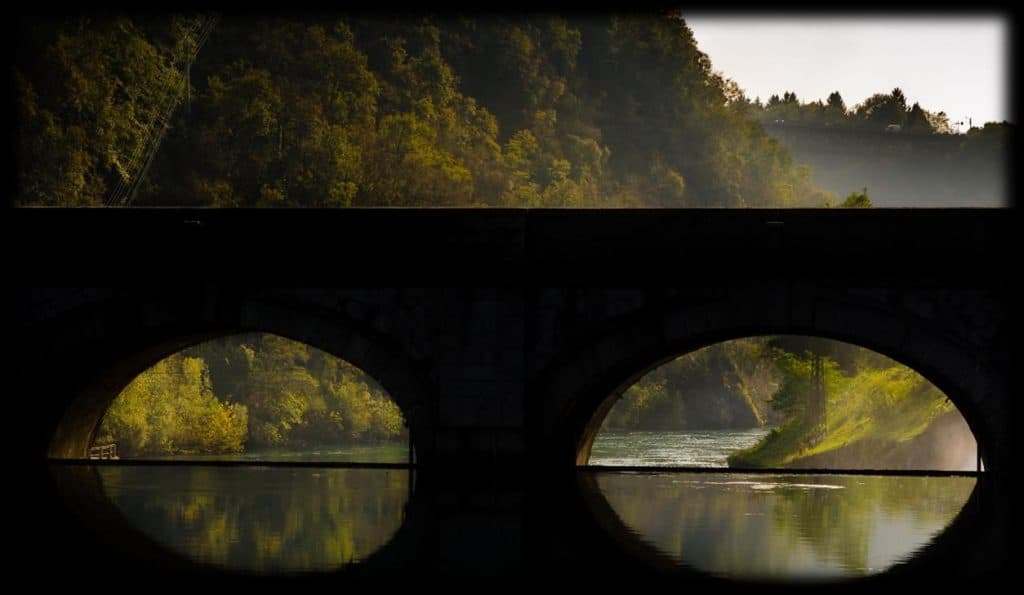
A bridge in Paderno over the river Adda
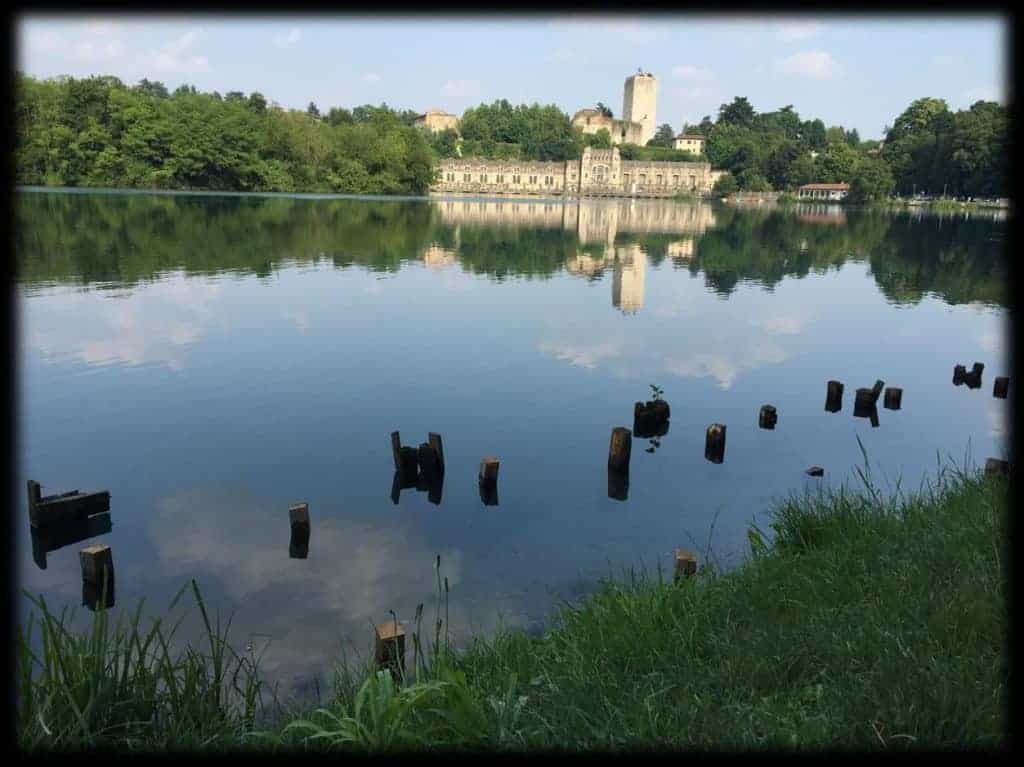
Trezzo D’Adda is a strategically important junction where the Visconti castle is located. More recently, a hydroelectric factory was built.
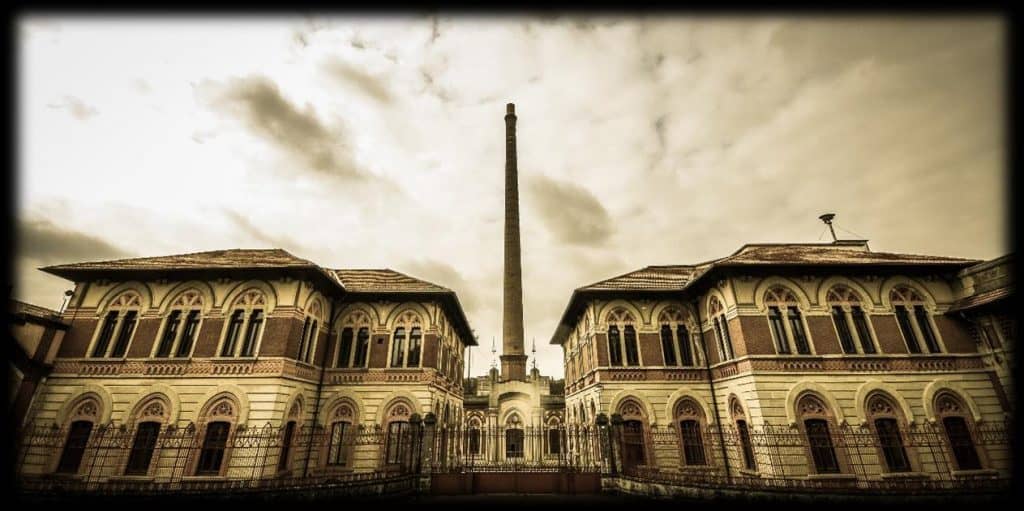
The main textile factory at Crespi D’Adda UNESCO World Heritage Site
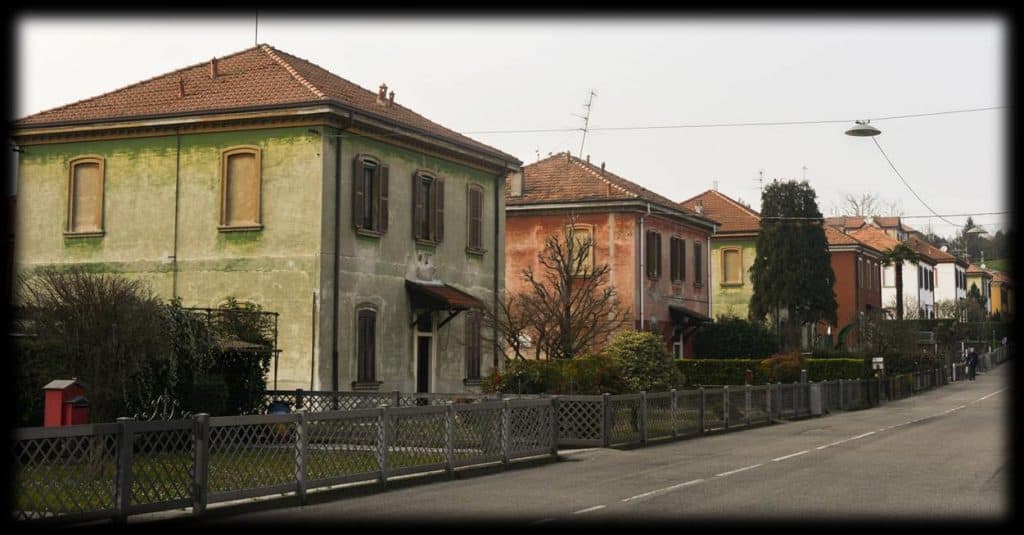
Workers’ houses in Crespi D’Adda
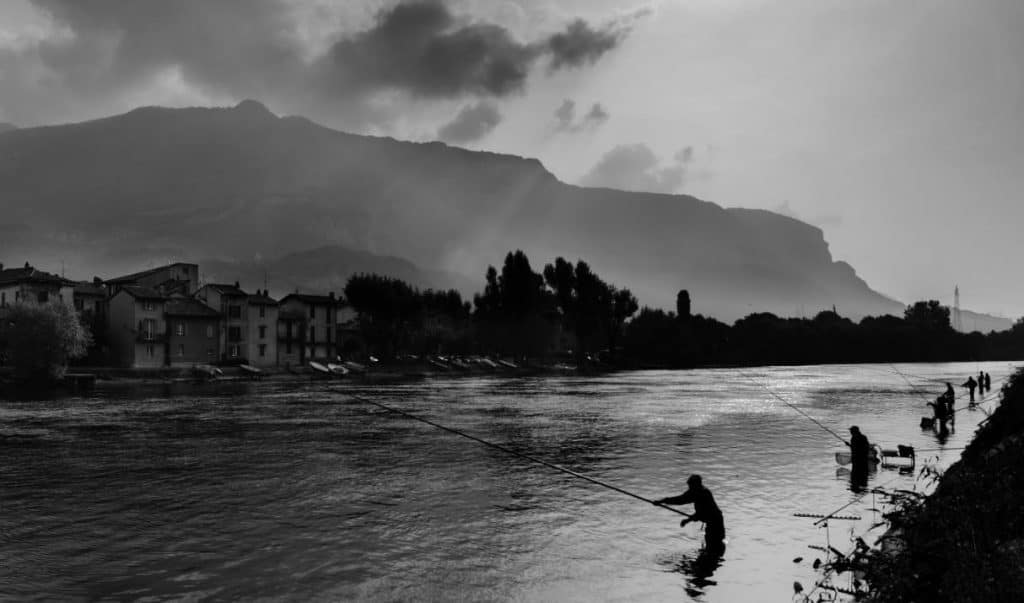
Fishermen in Lake Garlate, close to Lecco
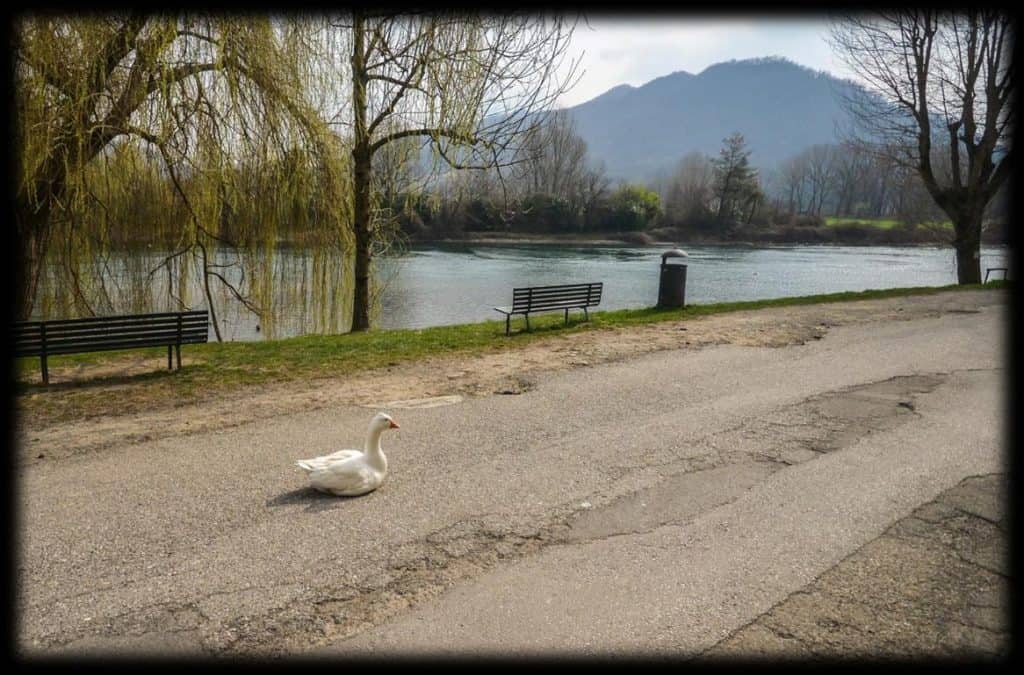
Luckily, the only road hazards are the sitting ducks
Naviglio Pavense (35km)
The tree-lined Naviglio Pavense was built in the 14th century and flows from Milan to the historic university town of Pavia. I find this cycling path a bit boring but great if you want to work on your fitness as the lanes are quiet, flat and straight! However, one highlight along the way is the Certosa di Pavia monastery, 8km north of Pavia. Pavia itself is beautiful and full of restaurants offering delicious local risotto dishes.
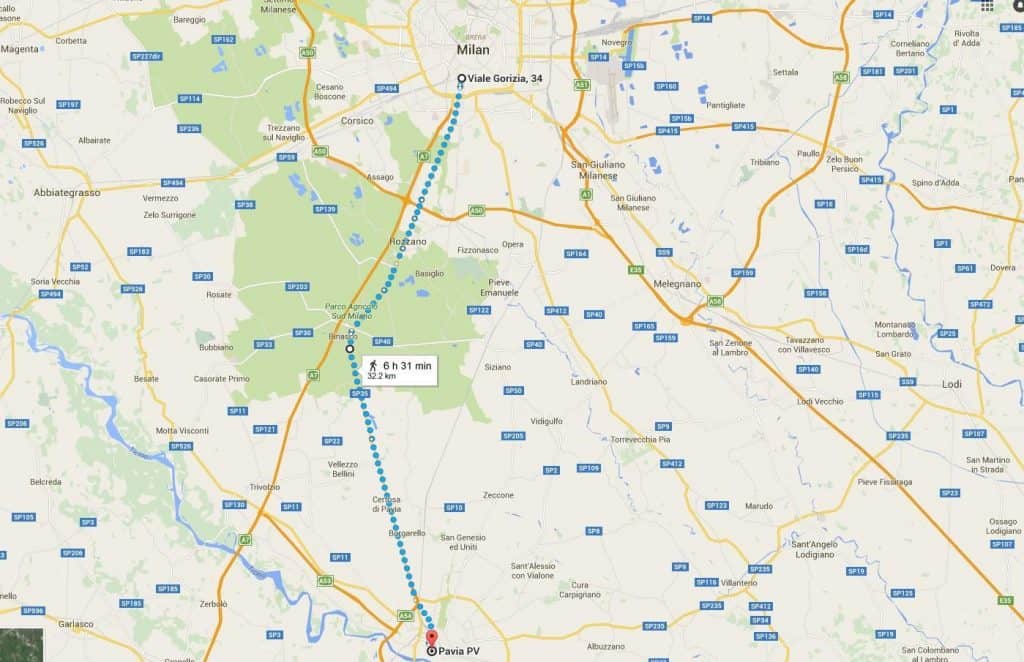
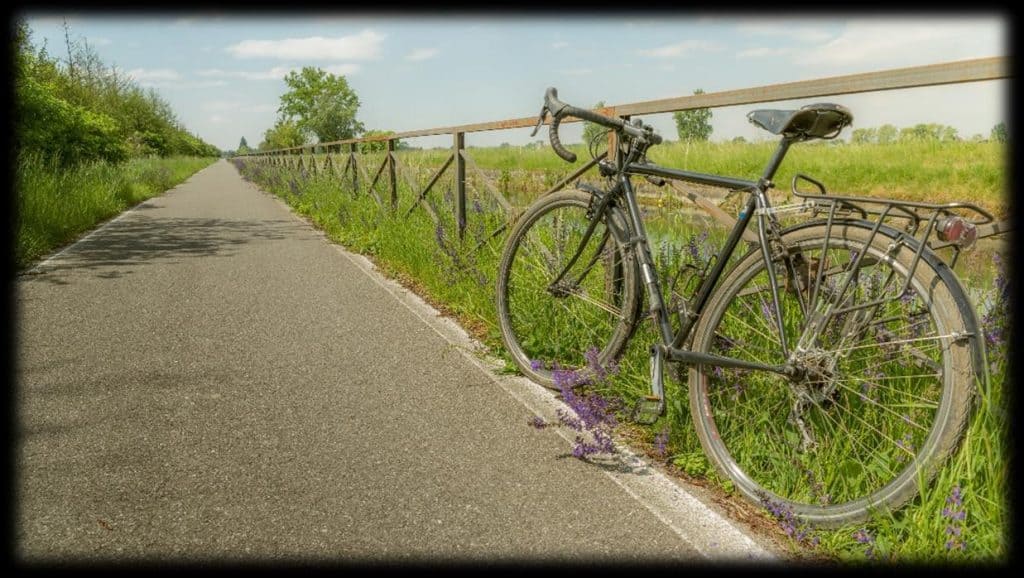
Straight + flat = 40 km/h
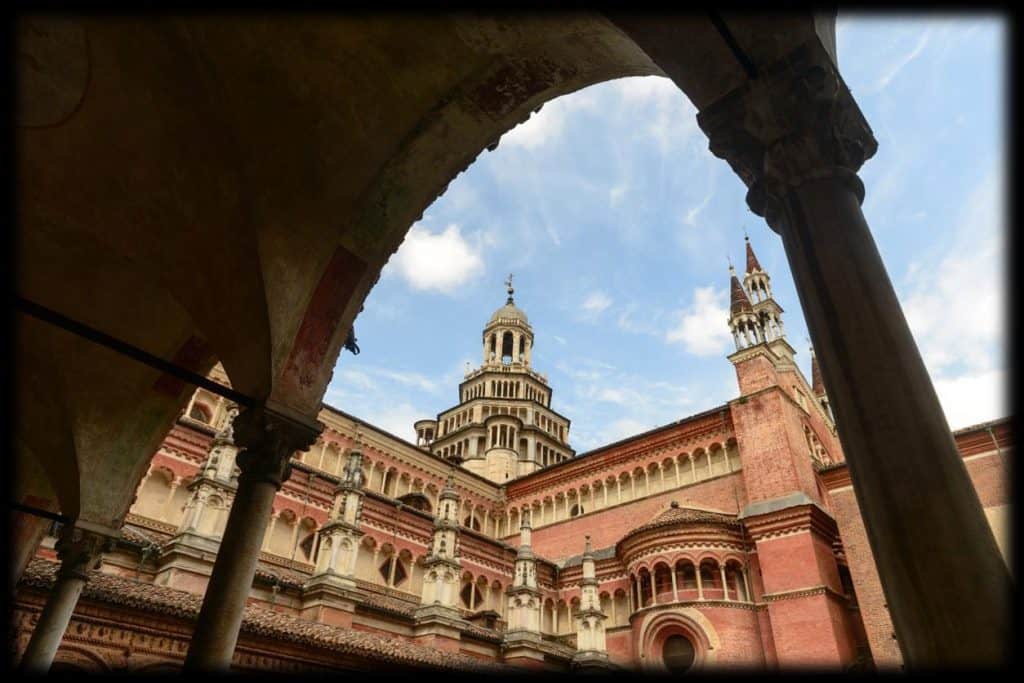
Certosa di Pavia
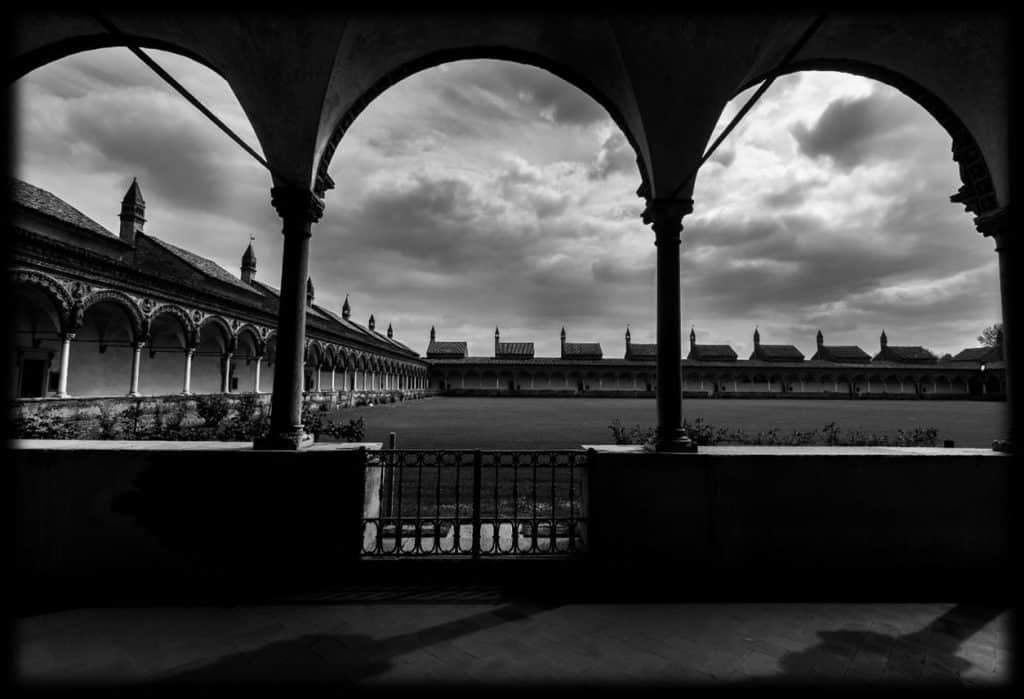
Certosa di Pavia monasteries
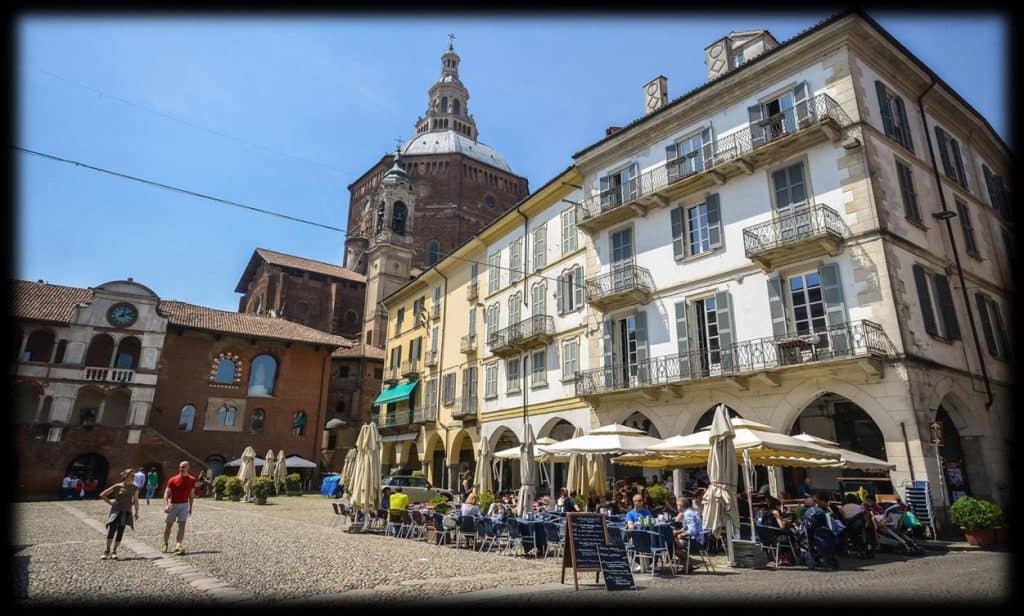
Pavia Town Centre, perfect for a spritz on a hot Summer’s day
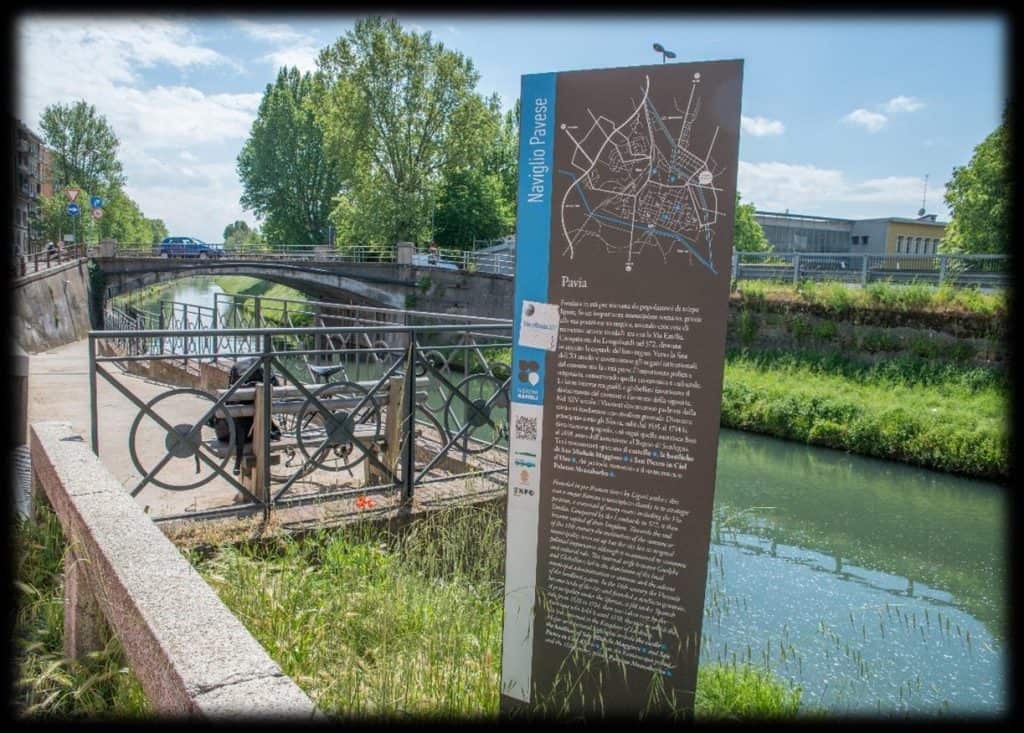
Arriving in Pavia. All routes are signed-posted throughout with a short history of each region. The territory surrounding Milan has exchanged hands between Visconti, Sforza, Spanish, Austrians and Napoleon so many times that I lost count.
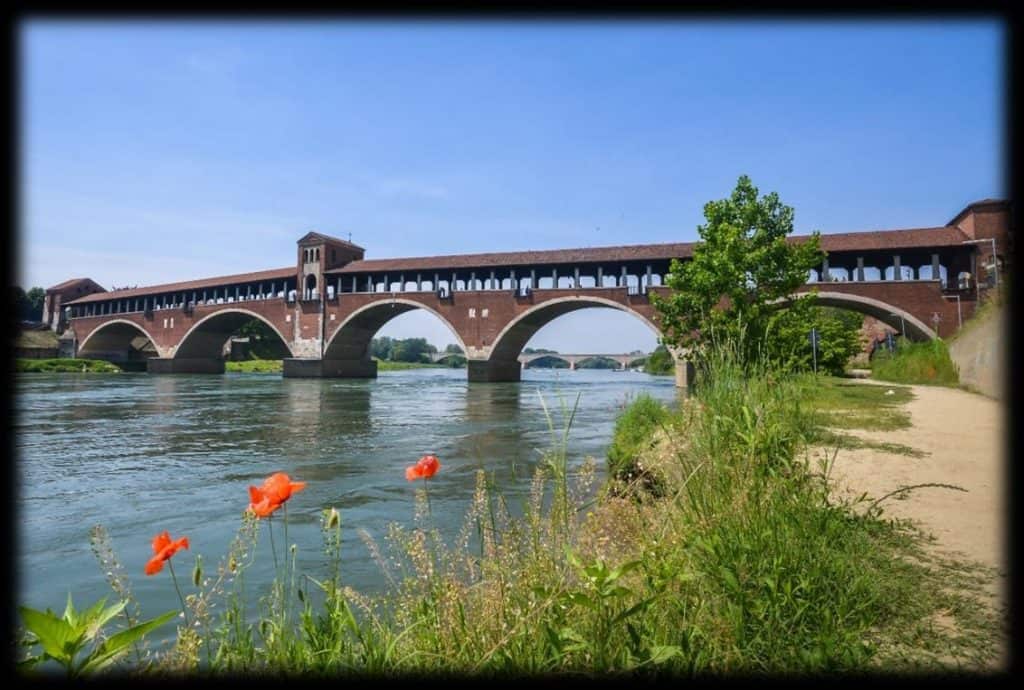
Ponte Coperto, Pavia. The previous bridge, dating from 1354 (itself a replacement for a Roman construction), was heavily damaged by Allied action in 1945. A debate on whether to fix or replace the bridge ended when the bridge partially collapsed in 1947, requiring new construction, which began in 1949. The new bridge is based on the previous one, which had seven arches to the current bridge’s five
About the author:
Alexandre Rotenberg is a semi-professional photographer and touring cycling enthusiast based in Milan. His website is www.arotenberg.photoshelter.com and you may contact him at arotenberg.photography@gmail.com.
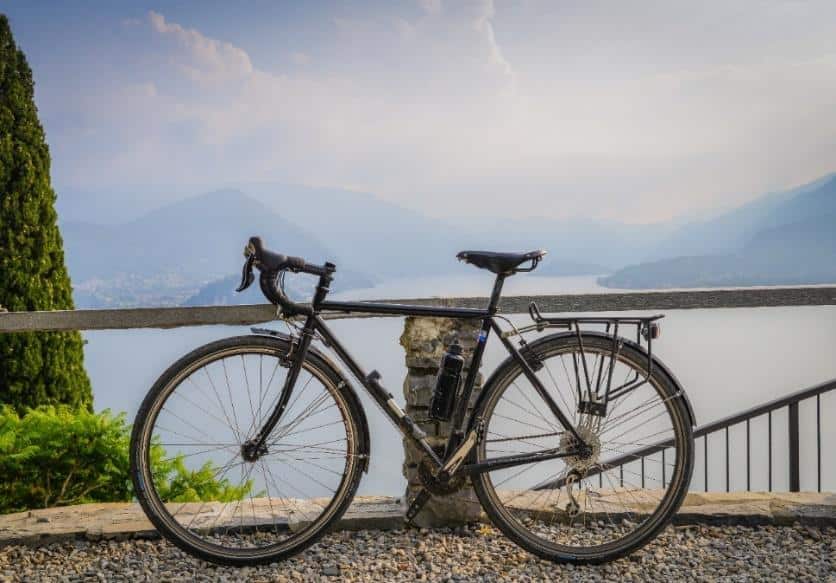
Overlooking Lake Como, a bike trip away from the busy streets of Milan
Like Our Articles?
Then make sure to check out our Bookstore... we have titles packed full of premium offshore intel. Instant Download - Print off for your private library before the government demands we take these down!







